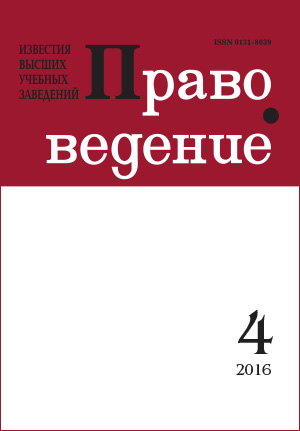Causa of legal transaction in the Italian law and in the perspective of the European private law
Abstract
In the Roman Law it is not present a mature development of the institute of the consideration of the contract. It is considered, in fact, that the elaboration of the institute of the consideration is to bring back to the reflections of the Domat and the Pothier. However, it is possible to identify evaluation mechanism supporting the reasons of the contract in the Roman Law as well, to give juridical recognition to the stipulated concrete act. In fact, this is the role played by the consideration. The study of Roman law and European private law shows that, despite the absence of a conceptual elaboration of the notion of cause of the contract, these two systems are particularly sensitive to the judgment of the reasons supporting the individual concrete acts. The Italian experience, by contrast, long neglected the evaluation and the judgment of concrete justifications of the individual act. That assessment, in fact, consisted in the evaluation of the motives, normally irrelevant; the consideration is rather long been identified with the typical constant reasons of the same class as the single act (eg. sale, rental etc.). According to the commonly accepted definition, therefore, the consideration was the institution tasked with expressing the social — economic function of the contract. Starting in the Sixties, but only in more recent times in the courtroom, however, the notion of consideration has established itself as a concept that expresses the concrete function of the contract . The paper analyzes this conceptual evolution that led to the Italian contract law to develop greater sensitivity towards the concrete reality, like European private law and the Roman one do.
Keywords:
Roman law, European private law, legal transaction, contract, causa, function, motives
Downloads
References
Downloads
Published
How to Cite
Issue
Section
License
Articles of "Pravovedenie" are open access distributed under the terms of the License Agreement with Saint Petersburg State University, which permits to the authors unrestricted distribution and self-archiving free of charge.




